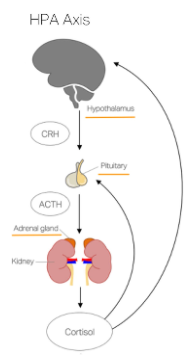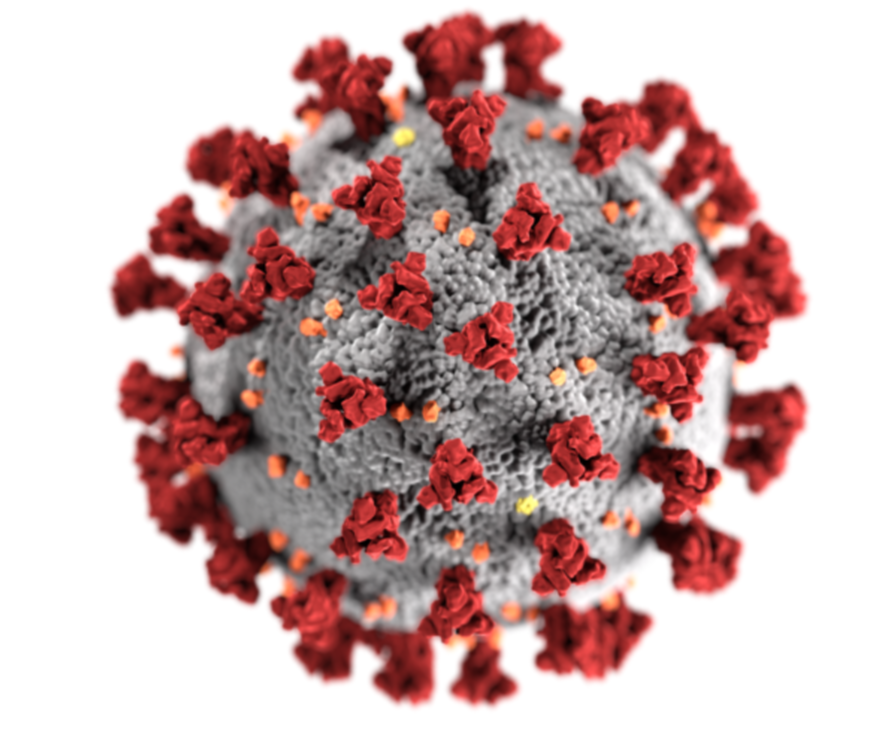The Science of Stress by Ananya MP
- medineersoftoday4
- Aug 13, 2021
- 3 min read

Have you ever experienced the feeling before an exam where you constantly panicked for weeks and saw yourself becoming sleep deprived, terrified and confused? Well, we've all been there. This is simply called ‘stress’. Stress is the result of physical, mental, or emotional pressure on the body, causing chemical and biological changes. Stress can cause a person to feel moody, distracted, snappy, obscure, and more. A few elements that may cause stress might be over working, upcoming exams, or even continuous bickering with your friends.
HOW IS STRESS TRIGGERED?
Stress is caused by the release of a hormone called ‘cortisol’. Cortisol or hydrocortisone is a primary stress hormone released in the bloodstream that increases glucose level of the body. The release of cortisol is triggered by the activation of the Hypothalamus-pituitary-adrenal axis or the HPA axis, which helps prompt the appropriate reaction to any situation.
ILL-EFFECTS OF CORTISOL
The release of a small amount of cortisol might help the body deal with stress but continuous release of this hormone is harmful. In a recent study, the cortisol levels of 2,231 people were recorded and analyzed. The participants were given memory tests, and had pictures of their brain taken and examined. It was seen that people with high cortisol levels in their blood had poor memory and the volume of their brains were reduced. Yes indeed -- over stressing can reduce the size of your brain! Constant stress increases the neural activity in the ‘amygdala’ -- the fear region of the brain. Less brain cells are manufactured in the hippocampus as it shrinks in size. Stress also shrinks the prefrontal cortex which is associated with learning, memory, and judgement. Prominent signs of stress can include memory loss, difficulty thinking, concentrating, and decision-making. Chronic stress and increase in plasma cortisol, leads to a reduction in the number of dendritic branches. This is concerning since dendrites are parts of the neuron responsible for receiving and passing electrical signals and serve as information receptors. Stress can affect the function of the immune system by modulating processes in the Central Nervous System and neuroendocrine system
STRESS AND DNA
The science of stress gets right down to the genetic level. They don't directly change the genetic code, but they determine the expression of a particular gene. In other words, they do not directly change your DNA sequence, but they can change how your body reads a DNA sequence. This is called ‘epigenetic change.’ Researchers found that chronic exposure to a stress hormone causes modifications to DNA in the brains of mice, prompting changes in gene expression. The significance of gene expression is that it allows the cell to respond to its environmental changes and regulate the formation of proteins. Hence, the more nurtured the mouse is, the more stable it is to handle stress since its brain has more cortisol receptors and this trait will pass onto several generations.
HOW TO CONTROL STRESS?
EXERCISE: exercise calms the mind and body, and thus decreases the level of adrenaline and cortisol in the body, stimulating endorphins.
MEDITATION: meditation enhances a deep state of relaxation. Regular meditation increases the overall well being of the body and can reduce stress and anxiety.
MUSIC: relaxing music can efficiently decrease heart rate, pulse rate, cortisol levels, and increase dopamine that makes the body light and happy.
CONCLUSION
Stress is normal and in many cases unavoidable. The real task is successfully getting it under control. After knowing all the downsides of stress, one must develop a skill to bring stress under control before stress dominates the individual. It is a top priority to nourish your brain and body to keep it safe and stable!
Ananya MP published on 8/13/21.
REFERENCES:
PICTURE CREDITS:






Good information.. very well written